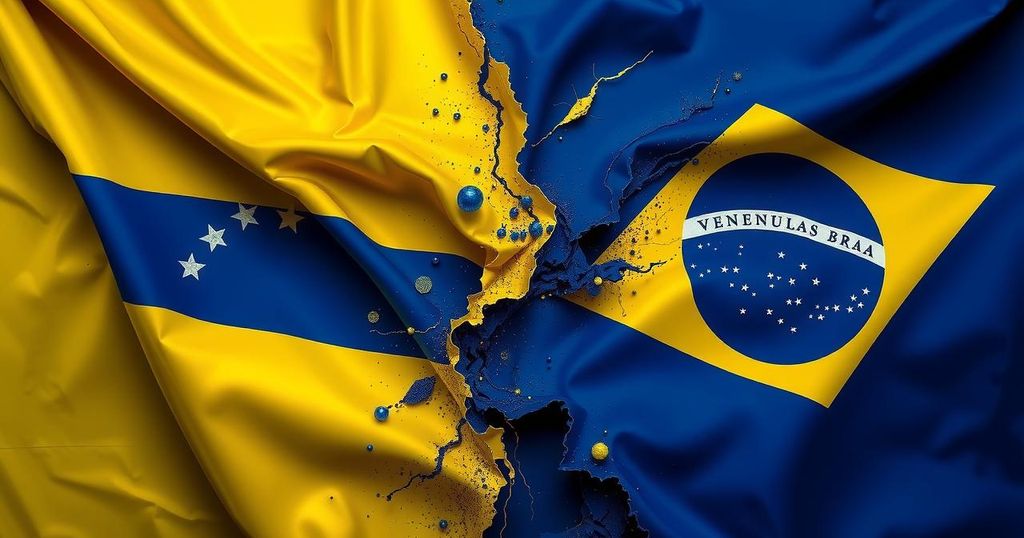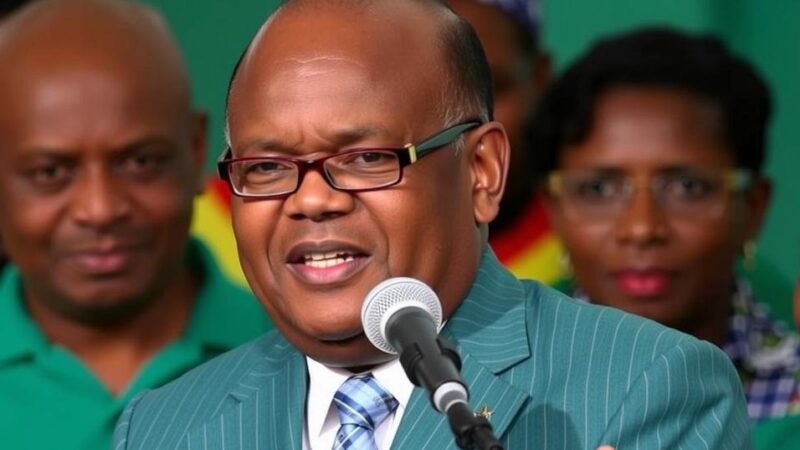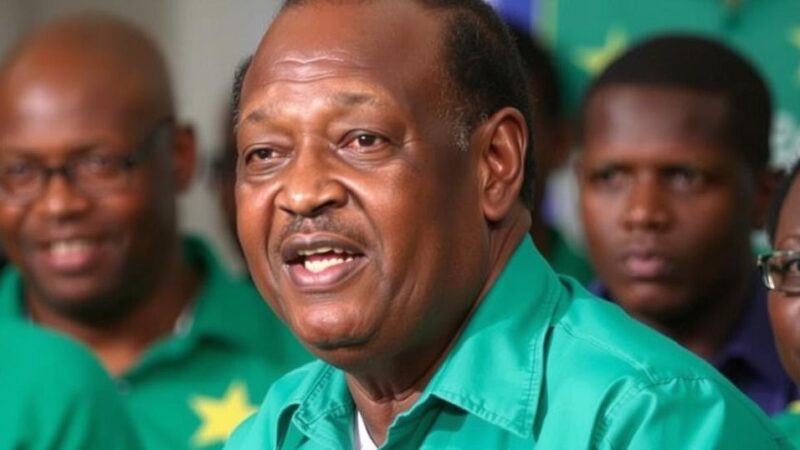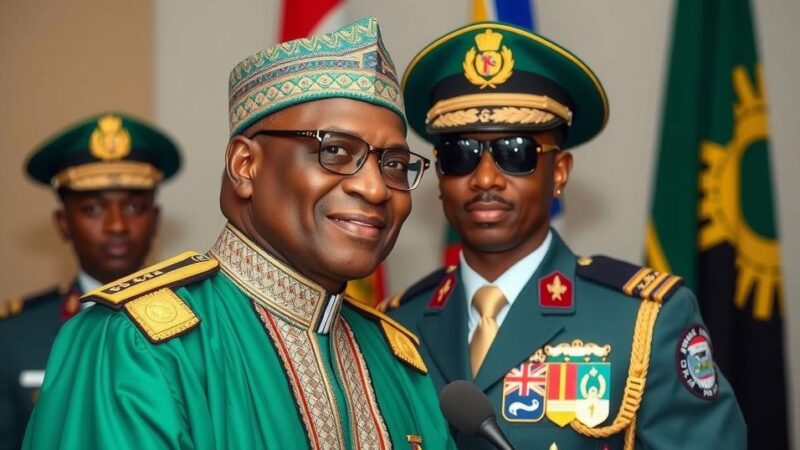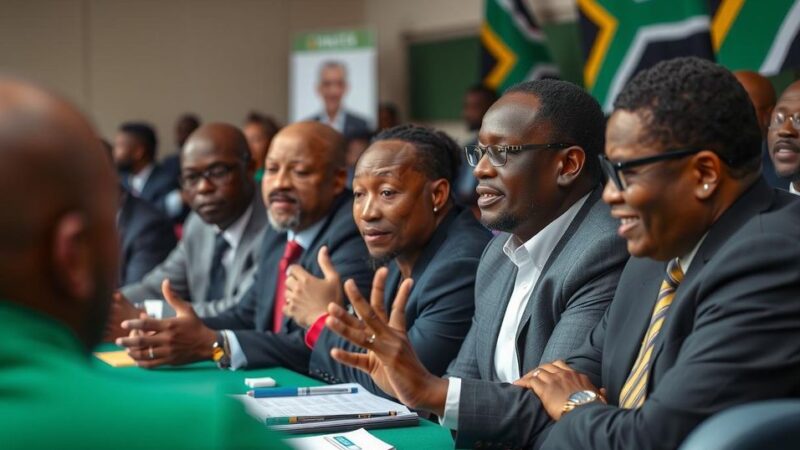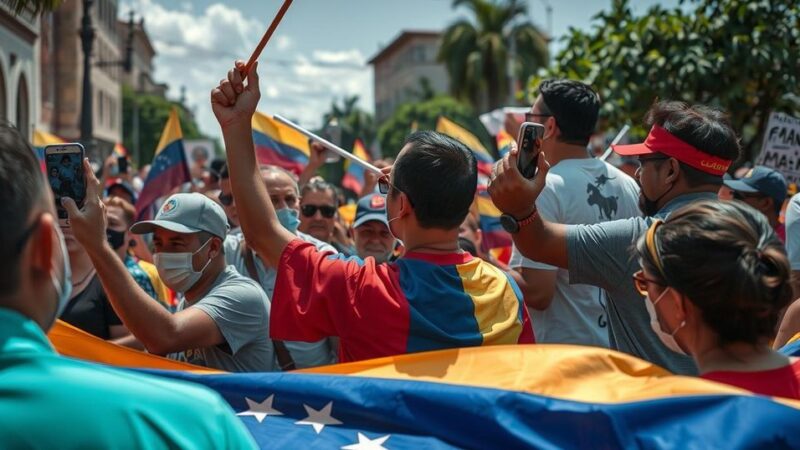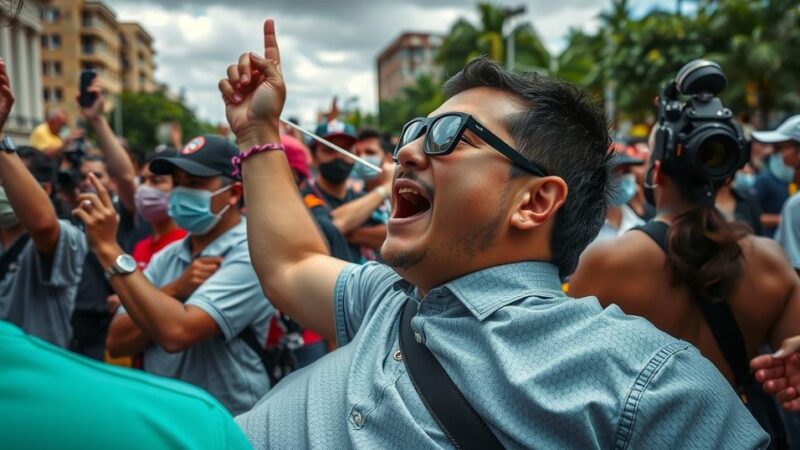The Venezuelan government has recalled its ambassador from Brazil due to perceived interventionist remarks from Brazilian officials, particularly criticizing Celso Amorim. This diplomatic escalation follows Brazil’s calls for transparency in Venezuela’s disputed presidential election and the veto of Venezuela’s BRICS membership. The situation underscores rising tensions amid significant bilateral migration and trade.
The Venezuelan government has announced its decision to recall its ambassador from Brazil in response to what it perceives as “repeated interventionist and rude statements” emanating from Brazilian officials. The Venezuelan Foreign Ministry has particularly criticized Celso Amorim, the chief foreign policy advisor to Brazilian President Luiz Inacio Lula da Silva, accusing him of functioning as a spokesperson for United States imperialism and of making inappropriate judgments regarding Venezuelan internal affairs. Furthermore, the Venezuelan Parliament’s leader, Jorge Rodriguez, has suggested that legislators consider designating Amorim as a persona non grata, further escalating diplomatic tensions. This move follows Brazil’s calls for transparency in the results of Venezuela’s disputed presidential election conducted in July, with President Lula echoing demands for Venezuelan electoral authorities to publish official ballot box counts. Although President Maduro has proclaimed victory in the election, official results have not been disclosed. The situation has been aggravated by Brazil’s recent refusal to support Venezuela’s entry into the BRICS coalition, which Venezuela condemned as an “inexplicable and immoral aggression.” Current Brazilian government data indicates that over 600,000 Venezuelans have migrated to Brazil in recent years, underscoring the significant bilateral relationship, which saw trade between the two nations amount to approximately $1.3 billion in Brazilian exports and $400 million in imports from Venezuela in 2022.
The recent diplomatic tensions between Venezuela and Brazil arise from a complex backdrop involving Venezuela’s politically charged electoral processes and Brazil’s vocal stance on regional democratic practices. After the controversial presidential election in Venezuela, global scrutiny was directed towards the legitimacy of the electoral process. President Lula’s direct calls for the Venezuelan government to disclose electoral results reflect a broader concern among international leaders regarding democratic integrity in the region. Venezuela’s response, which includes the recall of its ambassador and the denunciation of Brazilian officials, illustrates the deteriorating relations fueled by accusations of interference, highlighting the intricacies of diplomatic engagement between neighboring countries amid political unrest.
In summary, the Venezuelan government’s recall of its ambassador from Brazil highlights escalating diplomatic tensions rooted in recent electoral disputes and Brazil’s interventionist critiques. The Venezuelan administration’s strong rebuttal of comments made by Brazilian officials reflects growing frustrations over perceived external meddling in its domestic affairs. The ongoing diplomatic discord, marked by Venezuela’s withdrawal from BRICS entry discussions and claims of a flawed electoral process, signals a pivotal point in Venezuelan-Brazilian relations that may have broader implications for regional stability and cooperation.
Original Source: www.usnews.com

